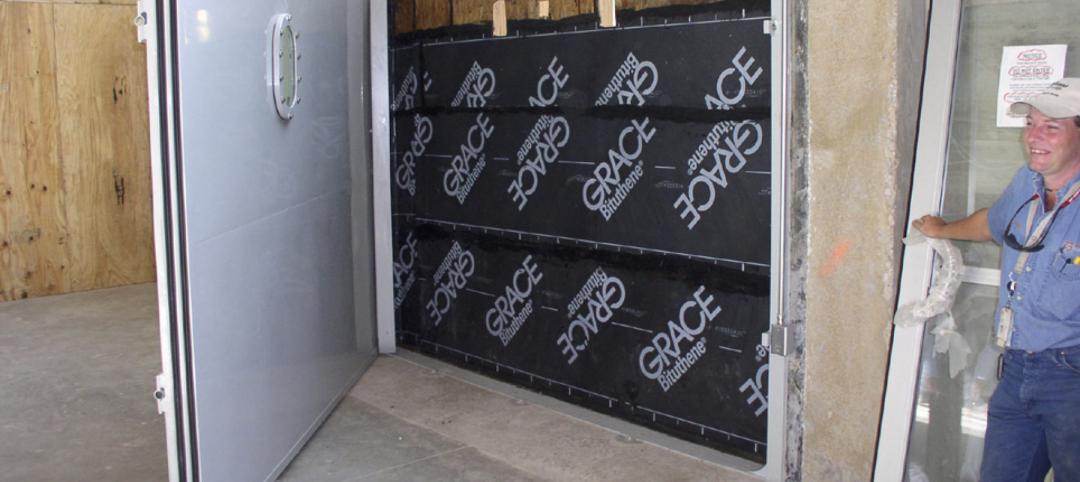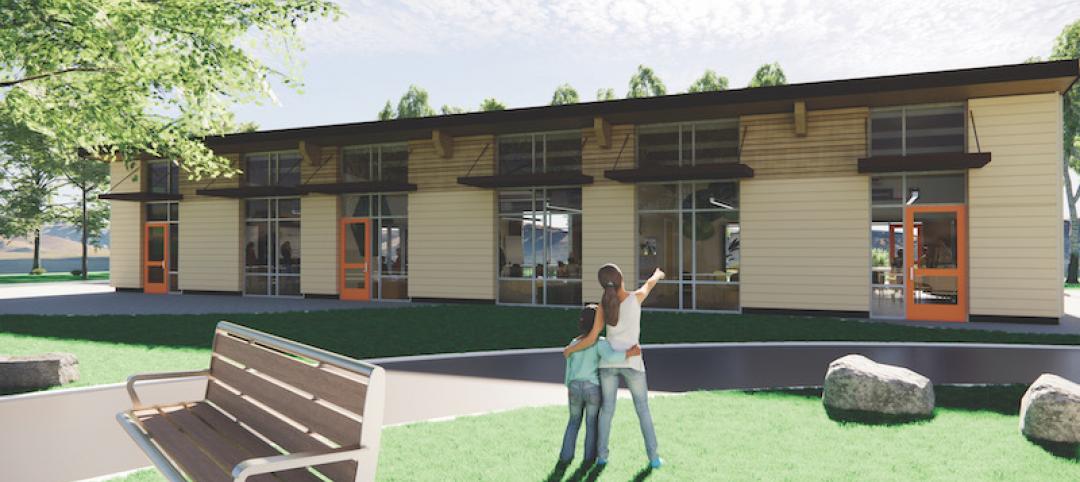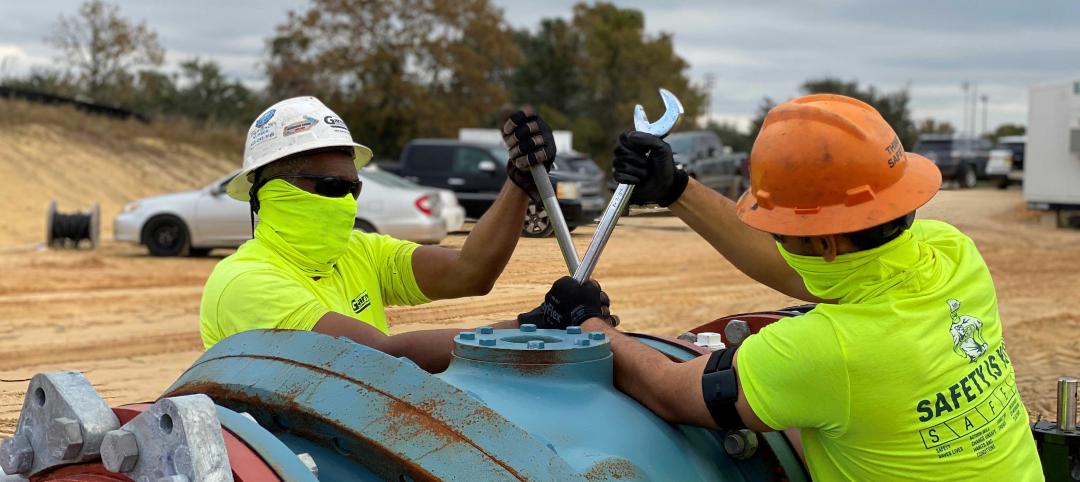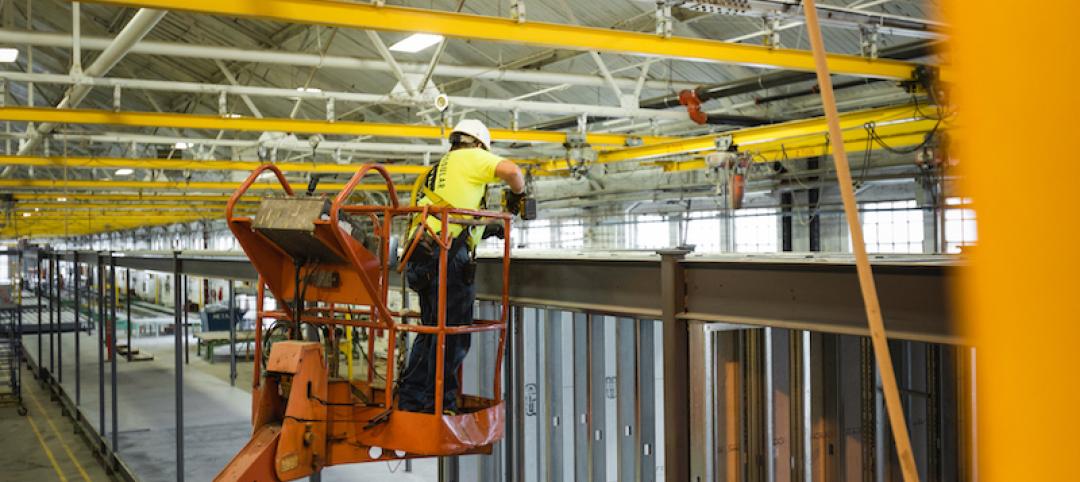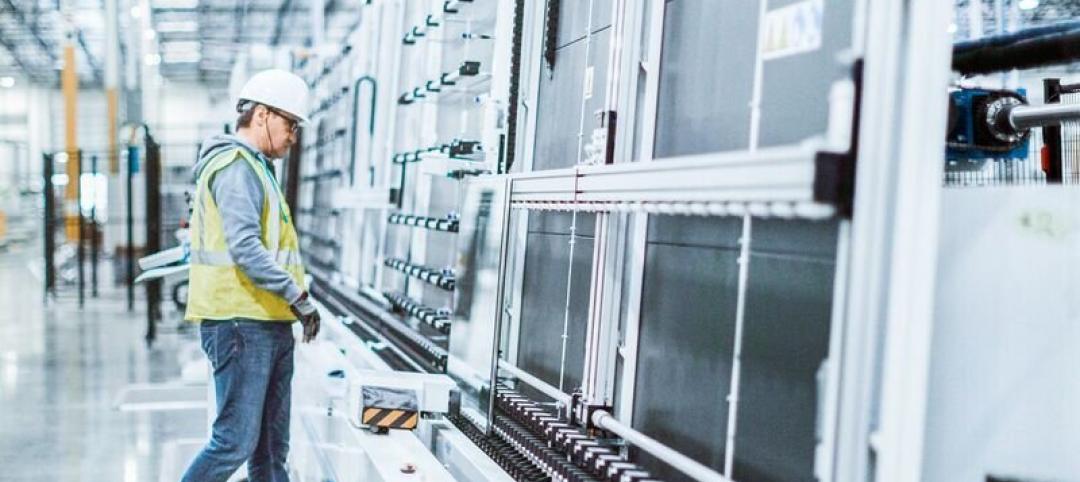WASHINGTON, DC - Last week, Senators Jeff Merkley Mark Pryor, Debbie Stabenow, Sherrod Brown, Bernie Sanders, and Ben Cardin introduced the "Building STAR Energy Efficiency Rebate Act of 2010" to create jobs by promoting the installation of energy-efficient renovations in commercial and multi-family residential buildings.
By utilizing rebates and low-interest loans, the "Building Star" program leverages between two and three dollars in private investment for every federal dollar spent. Rebates included in the bill would amount to $6 billion, in order to stimulate $18 to $24 billion in total investment, resulting in more than 150,000 new jobs. These jobs will pay well, allow companies to rehire laid off workers and infuse sorely needed capital into small businesses and hard-hit communities across the country. The savings accrued by building owners and the profits earned by laborers and manufacturers will power even more economic growth.
"Clean energy is not only the next great growth industry, but it's an engine for job creation today," Senator Merkley said. "Energy-efficiency programs like ‘Building Star' will put Americans to work in construction and manufacturing and save small businesses money as we strive for American energy independence."
"Building STAR" is supported by PIMA and other member organizations of Rebuilding America, a ground-breaking coalition of unions, contractor associations, manufacturers, financial services companies and energy efficiency advocates.
"Building Star" is similar to "Home Star," a parallel program that offers energy- efficiency assistance to homeowners. President Barack Obama announced his support March 2nd for the residential property "Home Star" program, including the financing options recommended by Senator Merkley.
"Senator Merkley's Building Star proposal recognizes the role commercial building retrofits can play in providing immediate job creation while ensuring the nation's existing buildings can fulfill their potential as energy efficient 21st century structures," said Polyisocyanurate Insulation Manufacturers Association President and CEO Jared Blum. "Commercial buildings retrofits are an essential part of any Congressional effort to chart an effective course for the nation's construction industry recovery program."
"Today, one in five construction workers - over 1.7 million people - are out of work. America's buildings are wasting both energy and money. As the Senate considers a jobs agenda for 2010, it should incorporate policies that will drive wide-scale building retrofits, such as the Building STAR proposal, that create good local construction jobs and reduce energy costs," said Reid Detchon, Executive Director of the Energy Future Coalition. "Building STAR is a package of rebates for energy efficient retrofits of commercial and multi-family residential buildings designed to create jobs and help small businesses nationwide."
Building STAR would:
• Create 25,000 jobs in 2010 for every $1 billion of federal investment for the hard-hit construction and building services, manufacturing, and distribution sectors. For a $6 billion federal investment, for example, Building STAR would create at least 150,000 jobs.
• Maximize federal investment, by leveraging $2-3 in private investment for every federal dollar spent. Building STAR would thus spur a total market activity of $18 - $24 billion, with a $6 billion federal investment, making this a great model for a public-private partnership and maximizing resource efficacy.
• Provide direct benefits to the thousands of small businesses, including the 91 percent of commercial contractors that have fewer than 20 employees.
• Use a simple application process so that building owners can participate easily.
• Work quickly, because the rebate and incentive levels are established in legislation, rather than by agencies, making it possible to implement Building STAR immediately. In addition, this program is based on existing, already- proven utility rebate programs and tax incentives.
• Deliver real energy savings and greenhouse gas emissions reductions, because of the typically large size and scope of commercial and multi-family building retrofits. For example, such retrofits could save industry $3.3 billion a year, based on data compiled by the American Council for an Energy Efficient Economy.
About PIMA
For over 20 years, the Polyisocyanurate Insulation Manufacturers Association (PIMA) has served as the unified voice of the rigid polyiso industry proactively advocating for safe, cost-effective, sustainable and energy efficient construction. PIMA's members, who first came together in 1987, include a synergistic partnership of polyiso manufacturers and industry suppliers. Polyiso is one of the Nation's most widely used and cost-effective insulation products available. To learn more visit www.polyiso.org.
Related Stories
Glass and Glazing | Sep 30, 2021
Plans move forward on Central Place Sydney, duel towers with an AI-driven façade system
SOM and Fender Katsalidis are designing the project.
Resiliency | Aug 19, 2021
White paper outlines cost-effective flood protection approaches for building owners
A new white paper from Walter P Moore offers an in-depth review of the flood protection process and proven approaches.
Wood | Jun 10, 2021
Three AEC firms launch a mass timber product for quicker school construction
TimberQuest brand seeks to avoid overinvestment in production that has plagued other CLT providers.
Building Technology | Jun 1, 2021
Orro Announces Google Nest Integration for the Orro Switch
Orro, creators of the professional-grade top-of-the-line Orro Smart Living System, today announced the integration of Nest products to Orro. As a certified partner in Google’s Device Access program, this latest Orro integration allows homeowners to have seamless control and access to Nest thermostats and doorbells from any Orro Switch throughout the home – creating a single unified smart home system with advanced, intelligent ambient control.
Coronavirus | Mar 11, 2021
The Weekly show, March 11, 2021: 5 building products for COVID-related conditions, and AI for MEP design
This week on The Weekly show, BD+C editors speak with AEC industry leaders about building products and systems that support COVID-related conditions, and an AI tool that automates the design of MEP systems.
AEC Tech | Mar 4, 2021
The Weekly show, March 4, 2021: Bringing AI to the masses, and Central Station Memphis hotel
This week on The Weekly show, BD+C editors speak with AEC industry leaders about the award-winning Central Station Memphis hotel reconstruction project, and how Autodesk aims to bring generative design and AI tools to the AEC masses.
Building Technology | Feb 10, 2021
Garney Construction trials new heat stress prevention device
The device helps to prevent heat injuries on job sites.
Modular Building | Jan 26, 2021
Offsite manufacturing startup iBUILT positions itself to reduce commercial developers’ risks
iBUILT plans to double its production capacity this year, and usher in more technology and automation to the delivery process.
AEC Tech | Dec 8, 2020
COVID-19 affects the industry’s adoption of ConTech in different ways
A new JLL report assesses which tech options got a pandemic “boost.”
Contractors | Dec 4, 2020
‘Speed to market’ defines general contractor activities in 2020
Contractors are more receptive than ever to ways that help get projects done faster.



